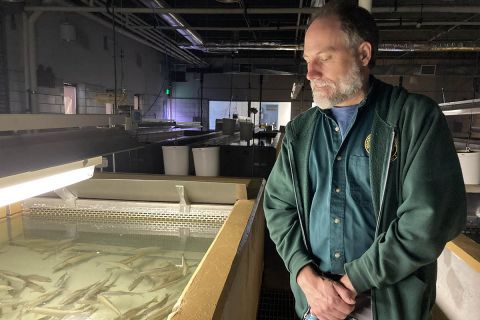No, I mean yes, but, no. I am talking about species and plants in relation to the simplistic definition of the word. Like, for instance, Penns Creek. It will NEVER be brook trout again. Ever. Period. So does that mean that you don't take "conservation" steps to protect the brown trout of that stream? And so like I asked before and you didn't address, is that called "management" instead? If something was threatening Penns and the brown trout population was highly at risk of collapse, would you argue that no human intervention should take place to attempt to save those fish and that system since they are non-native? And if we implemented strategies to save that species it is not conservation?
At what point do you embrace and protect what you have if there is never any going back to the "old way." After all, if it wasn't for those invasive human beings none of these changes would have yet to occur......dang us.
So I am really glad we are having this conversation because I think this theoretical scenario you brought up serves as a case study of sorts that allows us to break it down a little more.
Scenario one: Pennsy creek and all its aquatic residents as a whole become at risk due to water quality, hydrology, or some other reason. And the focus of restoration is as much conservation or ecological lift as possible.
There would be two aspects to conservation in this scenario in my mind.
1.water quality conservation for downstream ecosystems(Susky/ Bay)
2. Species conservation for native fish that add to the biodiversity and stability of the penns aquatic creek ecosystem. Basically remediating threats to the things that strengthen and stabilize the foodweb/aquatic ecosystem would be conservation.
What happens to brown trout happens to brown trout in this scenario because removal in systems the size of penns is not possible. So its helpful to think about brown trout in this example as née zealand mud-snails, can’t take em all out so we educate the public they harm ecosystem’s and don’t put them in a bucket and spread them to new waterways.
I think its a good mental exercise to think about this example of a penns catastrophe with introduction of new zealand mudsnails instead of brown trout. If the mud-snails benefit from a reduction in pollution we would call that a consequence of restoration to save the other species not conservation.
Scenario 2: Pretend brown trout started just crashing in Penns Creek independently of wild native brook trout that also have a population in the main-stem, at least seasonally. Well we can pretend this scenario is happening or just fly to southwestern montana where brown trout really are crashing relative to other trout species right now.
So what we have is an invasive species crashing, possibly extirpating in the future.
How you would handle this scenario really depends on what people collectively feel the watershed should be used for. If its conservation you use it and allow it to benefit that aquatic ecosystem as the invasive species fizzles out.
If people feel like the goal of what the watershed should be used for is purely financial, tourism, and recreational reasons then fisheries managers put time, money, and effort into propping up the invasive species like in Montana or Michigan with the lake run rainbows. This would be ufor social reasons not conservation reasons.

 www.bridgemi.com
www.bridgemi.com




